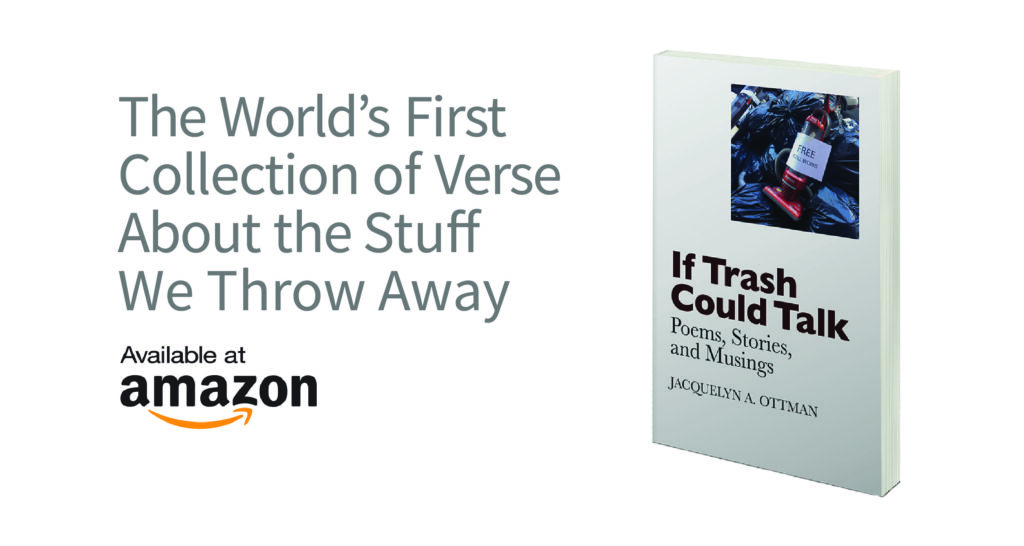The new Patagonia Worn Wear campaign is an initiative after our waste-hating hearts. It’s built around high quality clothes that are made to last, and the stories being told about them by people who live quality lives.
In 2011, Patagonia stopped the marketing world in its Black Friday tracks with its now famous ‘Don’t Buy This Jacket’ ad (pictured). The campaign underscored the durability of its clothes and provided a vehicle for customers to return its clothes for recycling and reuse called The CommonThreads Partnership.
This year they are announcing the debut of a Worn Wear label, by which they are selling their used clothing in their own stores. If you haven’t visited their site, or had a chance to drop in to one of their many stores to celebrate Patagonia Worn Wear, I encourage you to LINK NOW, view their video, and drink in some inspiration to both seek out quality goods that last in your own lives — and to begin to think about what it might take for the other favorite brands in your life to do the same.







Its a relief to see a major company take steps beyond “promising to lower their company’s carbon footprint”-a vague and usually unverifiable statement. I own one Patagonia piece of clothing, and after agonizing over the price tag initially, I can say the extra cost has paid off, as I have been using this pair of pants for 6 years now. You’re lucky to see cheaper articles of clothing last a year. I feel even better about supporting companies that practice meaningful waste reduction while manufacturing high quality goods. Thanks for a great article!
My Patagonia fleece is by far my favorite jacket. I was only introduced to the brand a few years ago but now I am hooked. While it is tempting to by the fleece I love in every color, I really have not been able to find a reason to purchase more than one. Even though I wear it a minimum of 4 times a week and it gets washed pretty frequently, it has yet to show any signs of age (even after three years). This jacket has come with me to college, across the ocean to England, and braved it’s share of East Coast winters.
I could not be more thrilled to see the Worn Wear campaign launch, knowing Patagonia is as committed to the planet as they are to business reinforces my choice to wear their clothing.
Great read!
This is a great initiative from forward thinking companies, yet as the co-founder of a small project founded on the basis of reusing materials and promoting sustainability I find that these kind of news are hard to find on mainstream media outlets.
What can we do as active advocates of sustainability in consumer products and small businesses to gain more traction and push for more coverage on mass distributed media outlets?
What an amazing, bold initiative for a company that continues to stand out for its sustainably minded business practices. The video had so many heart warming stories and does a great job of showing that Patagonia’s clothing is more than just something to consume, but something to help its users have great experiences to share. I find it difficult to see many brands following Patagonia’s footsteps and encouraging their consumers to buy less. Unfortunately, consumer culture is largely driven by continuously having the newest, flashiest product, not the most durable, greatest value product. Tech products especially are designed with obsolescence in mind, forcing users to purchase products when they really shouldn’t have to (ie: new operating systems that go beyond the capabilities of certain hardware, forcing users to buy the newest laptop, cellphone, etc). Patagonia, keep doing you!
Patagonia has been setting the standard in this are for some time now – not to mention their garments are next to bomb-proof. I’m certainly a fan!!
For those that may be interested, their was a great interview with Patagonia’s Yvon Chouinard (CEO & Founder) at the 2013 GreenBiz Forum. (FYI he’s not a fan of Apple)…
http://www.greenbiz.com/video/2013/03/01/patagonia-responsible-company
“Patagonia’s founder and CEO, Yvon Chouinard, talks with Joel Makower at the 2013 GreenBiz Forum on authenticity and responsibility in building Patagonia, and how consumers can use the power of their wallets to change society.”
Love this Patagonia campaign. Another company that I’m fond of, Everlane, did a similar thing on Black Friday this year and last: they shut their website down for the day, with a note saying, “Because we want to help people consume less by creating fewer, longer lasting products, we decided to shut down the site today. Have a wonderful holiday and we’ll be back tomorrow.” The great thing is that both of these campaigns got tons of coverage from social media, and even some traditional media coverage.
I think it’s clear that sustainable practices resonate with consumers, especially when they are more substantive than saying, “We use recycled content in our products” or, “We donate to sustainable organizations.” And the more that consumers speak up in their communities and on social networks, the more companies will find out that being sustainable is an advantage, not a cost.
I was very interested to read about this campaign when I first heard about it. It’s totally unlike anything that I’ve seen a clothing company come out with but was also confused to read other articles that said this campaign launch actually increased sales over the holiday season and for the following years. I think it’s definitely an interesting message but almost wished to have seen this campaign come from someone outside of the business. Do you know if Patagonia has done anything since this campaign launch to reduce the impacts its products make on the environment? I guess that while I see this as a revolutionary campaign, Patagonia is still making more products and their main aim is to sell more clothing so I have mixed feelings about this campaign.
I like the Point Jeremy made. Patagonia can take these risky marketing decisions because Patagonia is more ethical, they simply do more and care more than most companies. Not only that Patagonia is transparent about it. They have a dedicated website to show exactly where the products they sell come from: http://www.patagonia.com/us/footprint/
One way patagonia could improve the brand they are currently presenting to customers is to focus on the amount of money saved by buying the products they sell.
Patagonia should calculate how many times longer a patagonia jacket will last when compared to a Columbia brand jacket in a dollar amount, subtracting the cost of patagonias corporate social responsibility. Patagonia should present that number to customers; that would be a great advertisement.
My white Patagonia fleece zip is an everyday staple for me. And now i’ll wear it even prouder knowing of this campaign! It is such a wonderful breath of fresh air to see a major company truly striving for sustainability and to decrease waste! This campaign is a clear example of forward-thinking business practices–not to mention sustainable practices THAT WORK! Here, Patagonia shows that being socially and environmentally aware can be profitable. Great job!
Dana, I understand your mixed feelings and if you follow some of Yvon Chouinard, you will find that he is very straight forward in his mixed feelings on consumption as well- generally. But since the very beginnings of time, humans have had to dress in order to protect themselves from the elements (and in some cases for modesty as well). The reality is, as long as humans continue to make and use things, we will in some way be creating a carbon footprint. This is why he’s made it the company’s mission to explore and innovate the best possible ways to make products and operate as sustainably as possible on various levels.
As one of the case studies in my Sustainable Education, I admire Patagonia and was excited to see this posting on the company’s Common Threads Campaign. This company has it right, they are fostering a relationship with their customer based on values and transparency.
Patagonia aims to be a longevity brand rather than a blockbuster brand. They are redefining the bond between company and customer, by helping reduce consumption, fostering consumer awareness, creating quality product, and encouraging maximum life out of every product produced- in addition to product stewardship of facilitating the repurpose of garment materials. This is also brilliant in terms of marketing as it fosters customer loyalty, differentiates and sets them apart in the market.
Wow! I am an avid purchaser of Patagonia’s products because they are long-lasting, durable and extremely comfortable, but I was not aware of Patagonia’s Worn Wear Campaign until reading this article. Now I can gladly state that I am more intrigued and motivated to purchase their products because of this major step forward. The Common Threads Initiative might seem a bit strange to the ordinary consumer by intentionally purchasing and reusing a random person’s previously used clothing but I believe that it is beneficial not only can it be a more affordable option, but also because it proves that clothing brands can also provide sustainable option for today’s consumers including the younger more eco-conscious generations. I hope this brand will advertise its message more frequently as I believe this is a wonderful and exciting initiative that deserves further recognition.
I think the what might be the best result of this ad campaign is that it actually increased Patagonia’s sales and profits instead of doing the opposite. Sure, this is good news for Patagonia (although after they stated that they actually want to slow growth), but it’s even better for consumerism and green marketing as a whole! This really shows that people react to ad campaigns such as these and can help generate profits for companies that make conscientious efforts to decrease their impact. Another added benefit is that ad campaigns like this help change consumer habits, which in turn change corporate habits, into more sustainable long run behaviors.
I’m so glad that We Hate To Waste blogged about Patagonia’s Worn Wear campaign. I remember hearing about this initiative back in 2011, and being shocked that an American company would be so brave as to encourage customers to come into the store on Black Friday not to buy a product, but instead to have their well-worn clothing repaired — for free! With the prevalence of “fast fashion” and the throw-away mentality that Americans possess about their clothing, sustainability in the apparel industry has been slow to gain momentum. Compared to the food industry, which was quick to take on the organic, local, non-GMO food labels, apparel has been treated differently, probably because, in addition to the removal of the maker from the consumer, it isn’t ingested; the knowledge of the many hands that it passed through in order for it to come into our own doesn’t affect our physical health.
I could see how Patagonia was able to market this campaign to its consumers as an outdoor active-wear brand, yet sustainability must be addressed to the greater fashion industry, beyond the customers who already love the earth because it offers them a natural gymnasium. More than just ethically sourcing material, clothing can be sustainable if the consumer mentality changes. If trends are slower to develop and customers are willing to invest in pieces that are made to last and are minimal in style (so that they last throughout years of “trendy” seasons) then we can see real progress in the ethics and environmental sustainability of the apparel industry.
I’m so glad to see this post about Patagonia – their story and brand evolution has been an exciting one to follow. Building business success is contingent on how well a company is able to build its brand. Externally, sustainable branding consists of integrity, authenticity, stakeholder engagement, transparency, and value creation not only for customers but for society as a whole. Patagonia is one company that understands the importance of brand creation and this has been a huge factor in their success.
From an early stage, Patagonia determined that they are a brand that means quality while also priding themselves on strong environmental and social commitments. With that the founder Yvon Chouinard has consistently said they have they are often willing to spend more in the short term and slow business growth to maintain this business model that aligns with their values. These standards are woven throughout the core of their business in such a way that it has made Patagonia desirable and successful from a consumer and partner supplier point of view. The Patagonia Worn Wear is an exciting addition to the brand and with their constant environmental commitment and innovation I’m looking forward to see what they come up with next.
This case study is a bit lengthy but worth the read on Patagonia, their founder and social responsibility. http://www.greenleaf-publishing.com/content/pdfs/pata.pdf